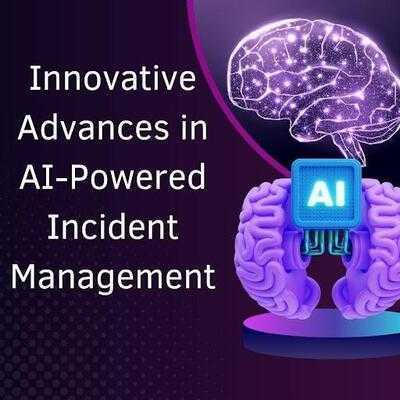
In today's fast-paced technological landscape, organizations are rapidly embracing innovative methods to manage critical operational incidents by integrating intelligent chatbot solutions and automated systems that streamline detection, analysis, and resolution. In this article, visionary AI expert Sudeep Annappa Shanubhog renowned for developing cutting-edge AI solutions offers insights on how these advancements are reshaping traditional paradigms and transforming operational workflows through sophisticated analytics and automation, ultimately driving the evolution toward smarter, more agile systems.
Reinventing Incident Response
The era of manual, reactive incident management is giving way to systems that proactively anticipate and resolve issues. Traditional ticketing methods have been replaced by AI-driven chatbots capable of interpreting natural language and making context-aware decisions. These systems harness advanced language models to classify and triage incidents with remarkable accuracy, ensuring that response efforts are both timely and effective. By shifting from labor-intensive processes to intelligent automation, organizations are realizing significant improvements in response times and operational resilience.
Harnessing Advanced Analytics
At the core of these innovative systems lies an array of sophisticated analytics tools that combine real-time monitoring with predictive capabilities. Utilizing natural language processing and machine learning, modern incident management platforms continuously analyze operational data streams. This enables the early detection of anomalies and subtle deviations that may signal emerging issues. By processing high volumes of events within seconds, these systems not only identify patterns but also predict potential failures before they escalate. Such proactive analytics empower IT teams to address vulnerabilities at their inception, thereby reducing the likelihood of severe service disruptions.
Empowering Automated Workflows
Automation transforms incident management by streamlining remediation workflows and ensuring operational consistency. Leveraging microservices architectures, automated systems execute standardized procedures with minimal human oversight, reducing error rates and accelerating resolution times. These intelligent systems dynamically scale to accommodate varying incident loads while maintaining robust, repeatable protocols. With orchestrated processes integrating detection, analysis, and remediation seamlessly, organizations experience reduced downtime and enhanced service quality. As automation evolves, it not only optimizes performance and resilience but also frees up critical human resources to focus on strategic initiatives and proactive system improvements, ensuring continuous excellence.
Enhancing Team Collaboration
Effective incident management relies not only on advanced technology but also on robust collaboration frameworks that connect team members across diverse operational landscapes. Modern systems facilitate real-time communication by integrating dynamic notification engines and role-based alert systems. This enables teams to coordinate their responses swiftly, ensuring critical updates are delivered promptly to the right individuals. Moreover, agile communication protocols embedded within these platforms support both structured commands and conversational interactions. Such seamless collaboration enhances situational awareness and fosters a culture of proactive problem-solving, essential for maintaining uninterrupted operational flow.
Securing Resilient Operations
In parallel with the drive toward automation and analytics, ensuring the security and compliance of operational processes remains a top priority. The latest incident management systems incorporate stringent security frameworks, including advanced access control, continuous audit logging, and compliance monitoring. These features guarantee that even as systems become more automated, the integrity and confidentiality of sensitive data are never compromised. Organizations can maintain operational resilience while meeting rigorous regulatory standards by implementing robust security protocols alongside innovative automation. This balance between efficiency and security is fundamental to sustaining long-term business continuity.
In conclusion, Sudeep Annappa Shanubhog, the integration of AI-driven chatbot solutions with automated workflows is revolutionizing incident management. By combining advanced analytics, agile collaboration, and robust security measures, modern systems are significantly enhancing operational efficiency and service reliability. As organizations continue to innovate and embrace these technologies, the future of incident management promises even greater advancements ushering in an era where predictive insights, real-time responsiveness, and seamless automation converge to create resilient, intelligent operational environments.